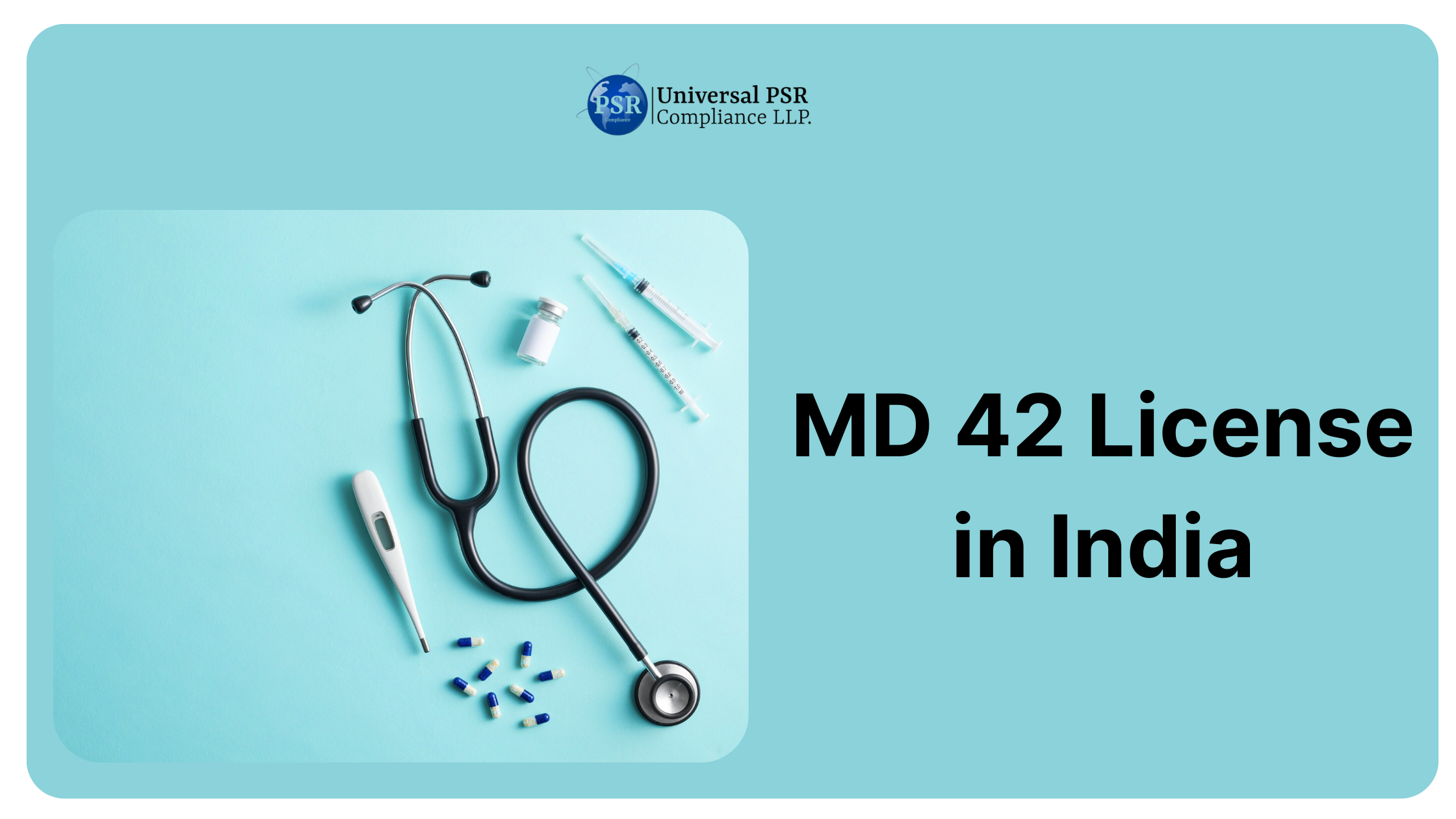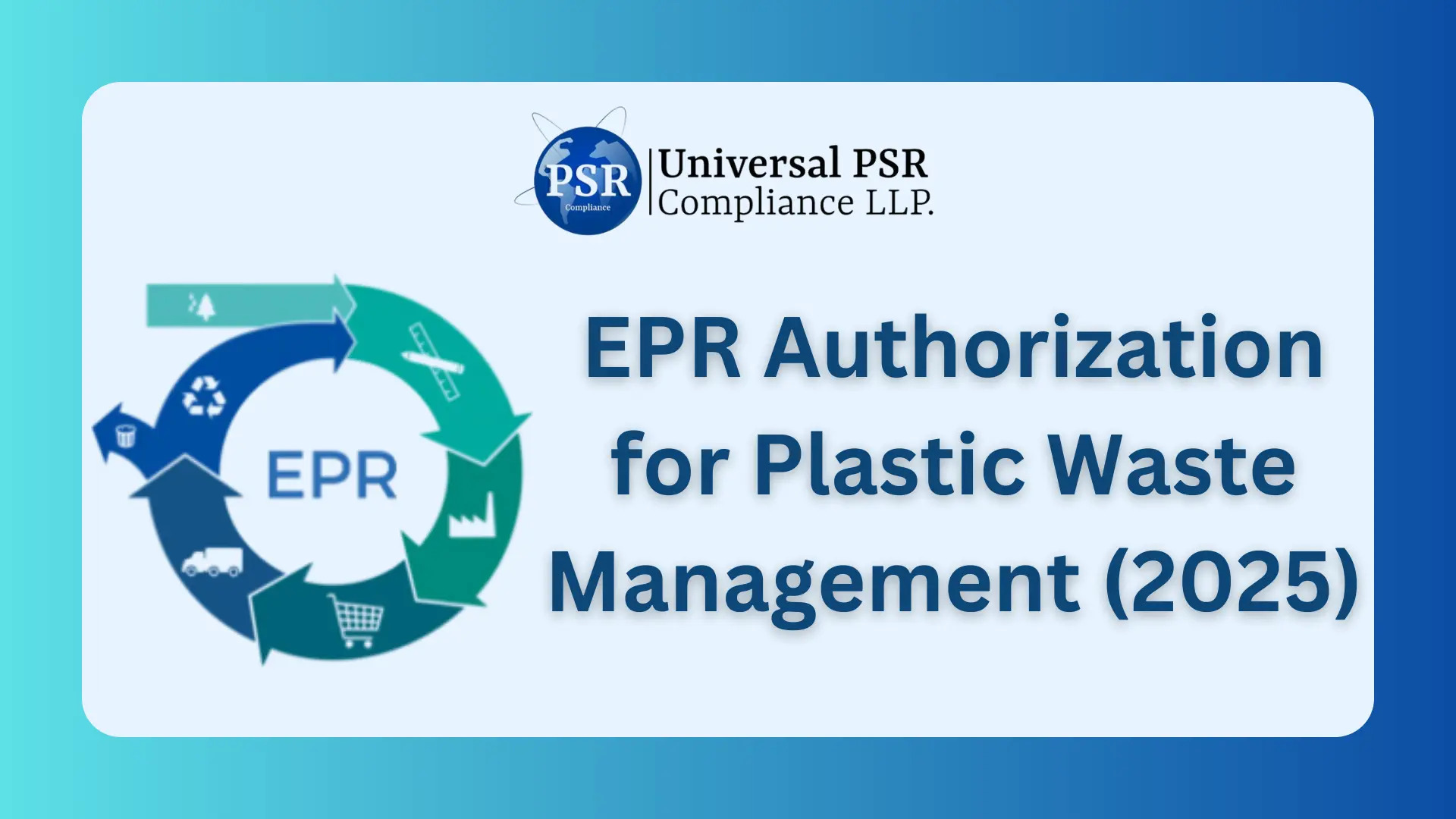MD-42 License Online Application Process Explained

India's medical device industry is rapidly expanding, and with increasing innovation and global exports, regulatory compliance has become more important than ever. If you’re planning to manufacture Class C or Class D medical devices in India, obtaining an MD-42 license is a mandatory requirement under the Medical Device Rules (MDR), 2017, regulated by the Central Drugs Standard Control Organization (CDSCO).
This article provides a complete overview of the MD-42 license in India, including its purpose, eligibility, documentation, application process, and compliance tips to help businesses navigate the regulatory landscape with ease.
What is MD-42 License?
The MD-42 license is a legal authorization issued by the CDSCO to manufacturers intending to produce Class C and D medical devices in India. These devices fall under the moderate to high-risk category, such as:
Cardiac stents
Dialysis machines
Orthopedic implants
Infusion pumps
Blood bags
Ventilators
Surgical instruments used in critical procedures
The MD-42 license is issued after thorough scrutiny of the applicant's manufacturing site, documentation, technical capability, and quality systems. This ensures that only safe, effective, and high-quality medical devices reach the market.
Who Needs an MD-42 License?
Any manufacturer of Class C or Class D medical devices in India must obtain this license before starting production or commercialization. This includes:
Medical device manufacturers setting up new plants
Existing manufacturers expanding product lines into Class C or D categories
Companies looking to export Class C/D devices from India
It is important to note that importers of medical devices require a separate license (MD-15), and manufacturers of Class A or B devices need an MD-5 license, typically granted by the State Licensing Authority.
Classification of Medical Devices: A Quick Overview
As per the Medical Device Rules, 2017, medical devices are classified into four categories based on risk:
Class A – Low risk (e.g., thermometers, bandages)
Class B – Low to moderate risk (e.g., hypodermic needles)
Class C – Moderate to high risk (e.g., blood bags, MRI machines)
Class D – High risk (e.g., heart valves, pacemakers)
The MD-42 license specifically applies to manufacturers dealing with Class C and D devices.
Eligibility Criteria for MD-42 License
To apply for an MD-42 license, manufacturers must meet the following eligibility requirements:
Own a manufacturing facility compliant with Good Manufacturing Practices (GMP)
Appoint qualified technical staff, such as a Production Head and Quality Assurance (QA) Head, with relevant academic and industry experience
Maintain proper infrastructure, including cleanrooms, quality control labs, and sterilization equipment
Implement a functional Quality Management System (QMS)—preferably ISO 13485 certified
A site inspection by CDSCO may be conducted to verify compliance before granting the license.
Documents Required for MD-42 License Application
Applicants need to submit detailed documentation to ensure compliance and transparency. Key documents include:
Site Master File (SMF) and Device Master File (DMF)
Manufacturing site layout and building plan
List of manufacturing and testing equipment
Details of raw materials and device specifications
SOPs (Standard Operating Procedures) for manufacturing and quality control
ISO 13485 certificate (if available)
List of qualified personnel with education and experience proof
Product labels and Instructions for Use (IFU)
Challan or receipt of prescribed government fees
Undertaking for regulatory compliance and safety standards
Incomplete or inaccurate submissions can result in application delays or rejection.
Step-by-Step Process to Apply for MD-42 License
The application process for MD-42 license is online via the CDSCO’s SUGAM portal. Here's a simplified breakdown:
1. Register on the SUGAM Portal
Create a user account, register your organization and manufacturing site, and complete profile details.
2. Fill and Submit Form MD-7
This form is used to apply for a manufacturing license of Class C or D devices. Include all required details such as device category, plant location, product specifications, and technical personnel.
3. Upload Required Documents
Attach the Site Master File, Device Master File, technical staff details, QMS information, and other mandatory documents.
4. Pay the Application Fee
The prescribed fee must be paid through Bharatkosh and the receipt uploaded to the portal.
5. Facility Inspection (If Applicable)
CDSCO may conduct an on-site inspection to assess your facility, processes, and compliance with MDR, 2017.
6. Grant of License (Form MD-42)
If all documents and conditions are satisfactory, CDSCO will issue the MD-42 license, authorizing manufacturing operations.
License Validity and Renewal
The MD-42 license is valid for an indefinite period. However, license holders must pay a retention fee every 5 years as per Rule 31 of the Medical Device Rules. Non-payment may lead to suspension or cancellation of the license.
Common Challenges in Getting MD-42 License
Lack of clarity on classification of the device
Incorrect documentation or missing forms
Absence of qualified technical staff
Facility not meeting infrastructure standards
Delays in CDSCO inspection or query resolution
Working with experienced consultants can help avoid these hurdles.
How PSR Compliance Can Help
At PSR Compliance, we specialize in regulatory consulting for medical device manufacturers. Our team assists with:
Device classification
Document preparation
CDSCO registration & SUGAM portal application
Query handling and compliance support
Post-license assistance and audit readiness
From startups to established manufacturers, we ensure a smooth and compliant licensing process.
Conclusion
Obtaining an MD-42 license is a critical step for manufacturers looking to legally produce Class C and D medical devices in India. With increasing global demand, stringent compliance standards, and growing market opportunities, having the right license not only ensures legal safety but also boosts your credibility in the healthcare ecosystem.
To read our detailed breakdown of the MD-42 license application process, documents, and expert support, visit:
🔗 https://www.psrcompliance.com/blog/md-42-license-in-india
Note: IndiBlogHub features both user-submitted and editorial content. We do not verify third-party contributions. Read our Disclaimer and Privacy Policyfor details.







